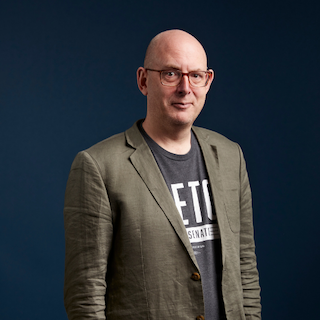WPP, Y&R, WTF? ‘Merging’ away storied and expensive agency brands doesn’t add up
As WPP merges VMLY&R and Wunderman Thompson – retiring the last remnants of J. Walter Thompson and Young & Rubicam for good – Kevin Chesters laments the death of the holding company’s distinctive brand assets.

It cost WPP more than $500m to buy the much-lauded advertising agency, J. Walter Thompson, in 1987. Or “the highest price ever paid for a company of this kind,” as The New York Times’s contemporary reporting put it. A little over a decade later, the holding company splashed out $5.5bn (!) for the similarly storied Young & Rubicam. Both entities had nearly a century of reputation and legacy, and many clients and great talent were attracted to them because of it.
In the last five years, WPP has taken these historic brands and ‘merged’ them with a couple of other slightly more modern entities they owned – Wunderman & VML, respectively – to form two new companies: Wunderman Thompson and VMLY&R.
Advertisement
At the time, there was much adland LOL’ing about the alphabet soup names that were created and a few murmurings of discontent about the quasi-disappearance of two of the most famous names in the industry.
But most people understood that (despite the effusive press releases) these decisions made lots of sense economically in a challenging commercial environment: fewer people, fewer buildings, and lower wage bills.
Now WPP has gone a step further.
It was announced yesterday that those two recently restructured entities were being ‘merged’ again into one brand-new outfit. Wunderman Thompson and VMLY&R became... VML. The two names – J. Walter Thompson and Young & Rubicam (combined brand history of 225+ years) – disappeared forever.
The more eagle-eyed among you may have noticed that this doesn’t sound or look much like a merger. It’s more like if Manchester United, Juventus and Real Madrid ‘merged’ to form a new global super-club called JUVENTUS, and made them play in black and white striped shirts.
Who cares, right? Clients don’t care about agency brands.
Well, they do. Because brands matter.
Advertisement
It’s in the same way that ALL customers care about brands (ask Binet & Field). Just maybe not all brands. They care about the right differentiated brands with a clear positioning and set of values that they can relate to or choose to align with. Or simply a distinct offer that meets an unmet need. This is what leads to repeat purchase and a degree of loyalty (Sorry Byron!)
This is the same for clients picking a partner for their own brands. Now, maybe clients don’t care about these two legacy brands we’re discussing here simply because they’ve had the soul, differentiation and quality ripped out of them over the last decade. But clients clearly care about the right agency brands. This is why they’re nearly always choosing Uncommon, Mother, NCA, Wonderhood or Lucky Generals over the big legacy network agencies that have been ‘merged’ to within an inch of their lives over the last few years.
If clients just want to save a few quid on pumping out programmatic ads, then yeah. But the clients that want great, distinct, effective, fame-building and brand-value-generating work go to the places that have the best TALENT.
The best talent wants to work somewhere interesting, motivating, and different. If you are brilliant at what you do, you can work anywhere. So, you’ll always want to work SOMEWHERE.
Suggested newsletters for you
To go back to the football analogy. If you’re Jude Bellingham, you want to play for Real Madrid, not ‘A Football Club Inc.’ You’d leave the latter entity to the journeymen players who are just grateful to have a contract or a club to pay their wages. But don’t expect them to win anything.
Agency brands are the reason that Omnicom bought Lucky Generals. It’s also why the same group bought Adam+Eve a few years back. It’s the reason Havas has paid a premium for Uncommon. And the reason that every holding company out there tried to get Dan Wieden to sell them W+K (which he thankfully never did). Accenture and Droga 5, I could go on.
But here’s the weird thing then, with what happened to JWT, Y&R. Why would you pay a fortune for a differentiated entity with a clear purpose and reason to exist, to then throw that away? Especially if what you espouse to clients is the power and role of BRAND.
Why, if you were a client, would you place your brand in the hands of people who seem to demonstrate time and again that they don’t care about their ones? You wouldn’t let someone look after your dog if they had a previous conviction for animal cruelty. You wouldn’t lend your car to someone who had just come out of the nick for dangerous driving. See where I’m going here?
I understand efficiency. I understand economies of scale. I understand how you can save yourself a fortune by sticking everyone in one building and cutting loads of support staff. But I’d rather companies were just a bit honest about it. The ‘merger’ yesterday is largely about saving money in an industry suffering from falling margins and reduced fees. But I believe it’s a bit dangerous for attracting or retaining the right kind of clients (beyond ones who want to save a few quid).
My belief in the power of brands isn’t some sentimental love affair. The power of brand is a mathematically robust, consistently proven case. Brands matter. Brands are worth a fortune. But mostly, humans are programmed only to notice the noticeably different (check out my book – The Creative Nudge – if you don’t believe me), so making the thing you’re selling interesting and distinct is the key to getting yourself bought (whether you’re an agency or a soap powder). And it’s the main key to attracting and retaining the critical element to success – talent.
My gran would always talk about ‘cobblers’ children going barefoot’. It’s fascinating in an industry where we continually talk about the value of brands that industry-leading companies would consistently demonstrate that they don’t care about their own. And then wonder why clients don’t choose them.
Kevin Chesters is a strategic consultant, trainer & speaker and former chief strategy officer of Ogilvy, Dentsu and W+K
